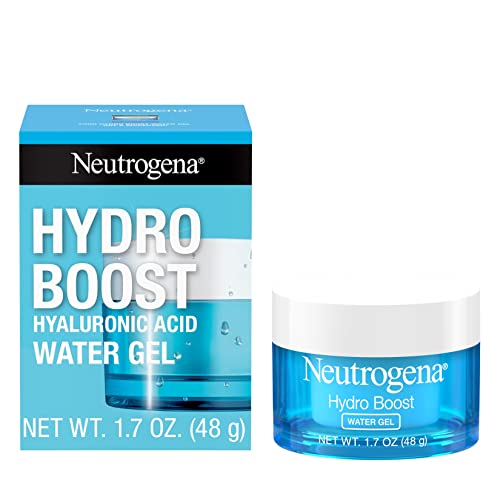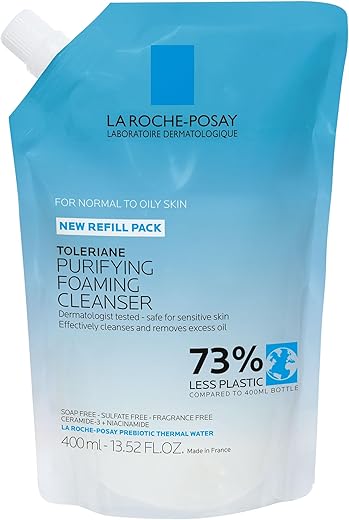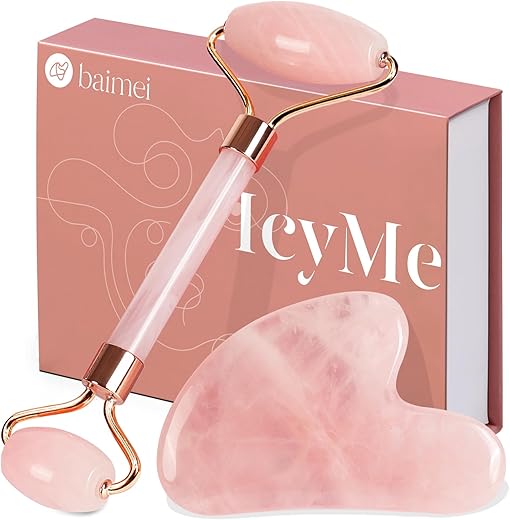
Is It Necessary to Use SPF in Your Facial Moisturizer?
We all strive for healthy and glowing skin, don’t we? We invest in skincare products, religiously follow our routines, and research the latest trends. But have you ever wondered if you’re missing a crucial element in your daily skincare regimen? That’s right, we’re talking about SPF in your facial moisturizer. Whether you’re a skincare enthusiast or just starting your journey towards better skin, this blog post will delve into the necessity of using SPF in your facial moisturizer. We’ll explore the vital role facial moisturizers play in our skincare routines and how SPF can amplify their benefits. So sit back, relax, and let’s dive into the world of skincare and sun protection.
In-Demand Facial Moisturizers for Hydrated and Healthy Skin






Understanding Facial Moisturizers
Facial moisturizers are an essential component of any skincare routine. They play a crucial role in maintaining healthy, hydrated skin and can provide numerous benefits for your complexion. In this blog post, we will explore the purpose of facial moisturizers, their key ingredients, and the different types available, helping you make an informed decision about incorporating them into your skincare routine.



The Purpose of Facial Moisturizers
Facial moisturizers are designed to hydrate and protect the skin. They work by replenishing the skin’s moisture barrier, preventing moisture loss, and creating a protective layer against environmental aggressors. Here are some primary purposes of facial moisturizers:
- Hydration: Moisturizers help to replenish the skin’s moisture content, keeping it soft, supple, and smooth.
- Barrier Protection: They create a protective barrier on the skin’s surface, shielding it from harmful pollutants, UV rays, and harsh weather conditions.
- Anti-Aging: Many moisturizers contain ingredients that help to reduce the appearance of fine lines, wrinkles, and age spots, promoting a more youthful complexion.
- Soothing and Calming: Some moisturizers contain ingredients like aloe vera, chamomile, or green tea, which soothe and calm irritated or sensitive skin.
- Balancing and Regulating: Moisturizers can help balance the skin’s natural oil production, making them suitable for both dry and oily skin types.
Key Ingredients in Facial Moisturizers
To understand the benefits and choose the right facial moisturizer for your skin, it’s essential to familiarize yourself with some key ingredients commonly found in these products. Here are a few important ones:
- Hyaluronic Acid: Known for its exceptional hydrating properties, hyaluronic acid attracts and retains moisture, plumping up the skin and reducing the appearance of wrinkles.
- Vitamins: Ingredients like vitamin C, E, and B5 provide antioxidant protection, improve skin elasticity, and brighten the complexion.
- Glycerin: A humectant that draws moisture from the environment into the skin, keeping it hydrated and preventing dryness.
- Ceramides: These lipids help to strengthen the skin’s natural moisture barrier, preventing water loss and maintaining hydration levels.
- Antioxidants: Ingredients such as green tea extract, resveratrol, or niacinamide protect the skin from free radicals, reducing signs of aging and promoting a healthier complexion.
Types of Facial Moisturizers
Facial moisturizers come in various forms, each catering to different skin types and concerns. Here’s a breakdown of the most common types:
- Creams: Ideal for dry or mature skin, creams have a thicker consistency and provide intense hydration and nourishment.
- Lotions: Lighter than creams, lotions are suitable for normal to combination skin, offering hydration without feeling heavy or greasy.
- Gels: Gel-based moisturizers are lightweight, non-greasy, and absorb quickly, making them ideal for oily or acne-prone skin.
- Serums: Serums are highly concentrated formulas that target specific skin concerns, such as hydration, brightening, or anti-aging. They are typically used in conjunction with a moisturizer.
How to Choose the Right Facial Moisturizer
Selecting the right facial moisturizer can be overwhelming, considering the plethora of options available. To simplify the process, here are some key points to consider:
- Consider your skin type: Whether you have dry, oily, combination, or sensitive skin, choose a moisturizer specifically formulated for your skin type.
- Look for key ingredients: Identify the ingredients that address your specific skin concerns, such as hydration, anti-aging, or sensitivity.
- Consider the texture: Decide whether you prefer a cream, lotion, gel, or serum based on your skin’s needs and personal preferences.
- SPF protection: If sun protection is a concern, opt for a moisturizer with broad-spectrum SPF to shield your skin from harmful UV rays.
- Allergies or sensitivities: If you have known allergies or sensitivities, ensure the moisturizer is free from any potential irritants.
By considering these factors, you can find a facial moisturizer that suits your needs, enhances your skin’s health, and contributes to a radiant complexion.
In conclusion, facial moisturizers are indispensable in maintaining healthy and hydrated skin. They provide essential hydration, protect against external aggressors, and address various skin concerns. By understanding their purpose, key ingredients, and the different types available, you can make an informed decision and choose the perfect facial moisturizer for your skincare routine.
The Importance of SPF
Sunscreen is an essential part of any skincare routine, and one of the key components in protecting our skin from the damaging effects of the sun’s ultraviolet (UV) rays. SPF, or Sun Protection Factor, is a measure of how well a sunscreen can protect your skin from the sun’s harmful rays. In this blog section, we will delve into the significance of SPF in protecting the skin from harmful UV rays, preventing premature aging, and reducing the risk of skin cancer.


Understanding UV Rays
Before we dive into the importance of SPF, it is crucial to understand the two types of UV rays that can harm our skin:
- UVA Rays: These rays can penetrate deep into the skin, causing long-term damage and aging. They are present throughout the year and can even penetrate windows and clouds.
- UVB Rays: These rays are responsible for sunburns and play a significant role in the development of skin cancer. They are most intense during midday and can be blocked by windows.
The Role of SPF
SPF is a crucial factor in choosing the right sunscreen product. It indicates the level of protection a sunscreen offers against UVB rays. The higher the SPF, the greater the protection. Here’s what you need to know:
- SPF 15: Blocks approximately 93% of UVB rays.
- SPF 30: Blocks approximately 97% of UVB rays.
- SPF 50: Blocks approximately 98% of UVB rays.
- SPF 100: Blocks approximately 99% of UVB rays.
It is important to note that no sunscreen can provide 100% protection. Therefore, reapplication is necessary to maintain the effectiveness of the sunscreen.
Benefits of SPF
Using sunscreen with a high SPF offers numerous benefits for your skin. Let’s take a look at some key advantages:
- Protection Against Skin Cancer: Regular use of sunscreen with a high SPF can significantly reduce the risk of developing skin cancer, including both melanoma and non-melanoma types.
- Prevention of Premature Aging: Sun exposure is one of the leading causes of premature aging. UV rays can break down collagen and elastin, leading to wrinkles, fine lines, and sagging skin. By using SPF, you can minimize the harmful effects of the sun, keeping your skin youthful and healthy.
- Reduces Hyperpigmentation: Sunspots and uneven skin tone can be caused by excessive sun exposure. Using sunscreen with a high SPF can prevent the formation of these dark spots, resulting in a more even complexion.
- Prevents Sunburns: Sunburns are not only painful but also indicate significant damage to your skin. By using a sunscreen with a high SPF, you can protect your skin from the harmful effects of UVB rays, preventing sunburns.
Choosing the Right SPF
Choosing the right SPF for your skin can be a personal decision based on your skin type, sensitivity, and the level of sun exposure. Here are some factors to consider:
- Fair or sensitive skin: Opt for a higher SPF, such as 30 or above, to provide better protection.
- Outdoor activities: If you spend a lot of time outdoors, choose a higher SPF and consider reapplying every two hours.
- Everyday use: An SPF of 15 or higher is generally sufficient for daily use, especially if you spend most of your time indoors.
Remember, regardless of the SPF you choose, it is essential to reapply sunscreen every few hours, especially if you sweat or swim.
Factors to Consider
When it comes to choosing the right facial moisturizer with SPF, there are several important factors to take into consideration. Understanding your skin type, evaluating your daily sun exposure, and considering your personal preferences can all help you make an informed decision. Let’s delve into these factors in more detail:



Skin Type
One of the most crucial factors to consider when selecting a facial moisturizer with SPF is your skin type. Different skin types have varying needs and react differently to different ingredients. Here are some key points to keep in mind:
- Oily Skin: If you have oily skin, look for a moisturizer that is oil-free and non-comedogenic (won’t clog pores). Consider a lightweight formula that won’t feel heavy on your skin.
- Dry Skin: For dry skin, opt for a moisturizer with SPF that provides intense hydration. Look for ingredients like hyaluronic acid or glycerin, which help to lock in moisture.
- Sensitive Skin: Individuals with sensitive skin should choose a facial moisturizer with SPF that is free from fragrances and harsh chemicals. Look for products labeled as hypoallergenic and dermatologist-tested.
- Combination Skin: If you have combination skin, where some areas are oily and others are dry, choose a moisturizer with SPF that is suitable for all skin types. Look for lightweight, non-greasy formulas.
Daily Sun Exposure
The level of sun exposure you experience on a daily basis is another important factor to consider. Here’s why:
- High Sun Exposure: If you spend a lot of time outdoors or are frequently exposed to direct sunlight, it’s crucial to choose a facial moisturizer with a higher SPF rating, such as SPF 30 or above. This will provide you with better protection against harmful UV rays.
- Limited Sun Exposure: Individuals who spend most of their time indoors or in areas with limited sun exposure may opt for a lower SPF rating. However, it’s still recommended to choose a moisturizer with at least SPF 15 to protect against incidental sun exposure.
Personal Preferences
Your personal preferences should also play a role in your decision-making process. Take into account the following factors:
- Texture: Consider whether you prefer a lightweight or richer texture in your facial moisturizer. Some people prefer a quick-absorbing formula, while others enjoy a more emollient feel.
- Scent: Pay attention to the fragrance of the moisturizer. Some people prefer unscented products, while others enjoy a light, pleasant scent.
- Additional Benefits: Look for additional benefits that the facial moisturizer with SPF may offer, such as antioxidants, anti-aging properties, or added hydration.
Comparison Table
To help you compare and understand the key points discussed above, here’s a helpful table:
| Factor | Oily Skin | Dry Skin | Sensitive Skin | Combination Skin |
|---|---|---|---|---|
| Skin Type | Oil-free, | Hydrating, | Fragrance-free, | Suitable for all |
| non-comed- | non-greasy | hypoallergenic, | skin types | |
| ogenic | dermatologist- | |||
| tested | ||||
| SPF Rating | SPF 30+ | SPF 15+ | SPF 15+ | SPF 15+ |
| Sun Exposure | High | Limited | Limited | Limited |
| Texture | Lightweight | Rich | Lightweight | Lightweight |
| Scent | Unscented | Scented | Unscented | Unscented |
| Additional | ||||
| Benefits |
By considering these factors, you can make a well-informed decision when choosing a facial moisturizer with SPF that suits your unique needs. Remember, protecting your skin from the sun’s harmful rays is essential for maintaining healthy and youthful-looking skin.
The importance of SPF in facial moisturizers: A conclusive answer
In conclusion, incorporating SPF into your facial moisturizer is highly beneficial for protecting your skin from the damaging effects of the sun. By considering your own unique needs and preferences, you can make an informed decision about whether to include SPF in your daily skincare routine. Remember, safeguarding your skin from the sun’s rays is crucial for maintaining healthy and youthful-looking skin.
Common Questions about Facial Moisturizer
How does SPF in facial moisturizers protect the skin from harmful UV rays?
SPF, which stands for Sun Protection Factor, in facial moisturizers protects the skin from harmful UV rays by acting as a barrier between the skin and the sun. When applied to the skin, the SPF forms a protective layer that absorbs or reflects the ultraviolet (UV) radiation from the sun. UV rays consist of UVA and UVB rays, both of which can damage the skin.
UVA rays are responsible for premature aging, such as wrinkles and age spots, while UVB rays are the primary cause of sunburns. SPF in facial moisturizers primarily shields the skin from UVB rays, which are more intense and directly affect the outermost layer of the skin.
The SPF number indicates how long it takes for UVB rays to redden the skin compared to unprotected skin. For example, if you apply a moisturizer with SPF 30, it means it will take 30 times longer for the skin to burn compared to if you didn’t have any protection. However, it’s important to note that SPF does not provide total protection and should be reapplied regularly, especially after swimming or sweating.
In summary, SPF in facial moisturizers protects the skin from harmful UV rays by absorbing or reflecting them, reducing the risk of sunburn and premature aging. It is an essential component in maintaining healthy and protected skin.

Hey, I’m Ava Wilson—a skincare enthusiast and a certified esthetician. I’m dedicated to sharing my knowledge and empowering others to achieve healthy, glowing skin through simple, effective routines and natural remedies. Join me on this exciting skincare journey, and let’s unlock your skin’s potential for a confident, beautiful you.





